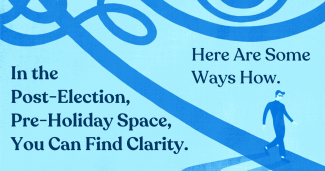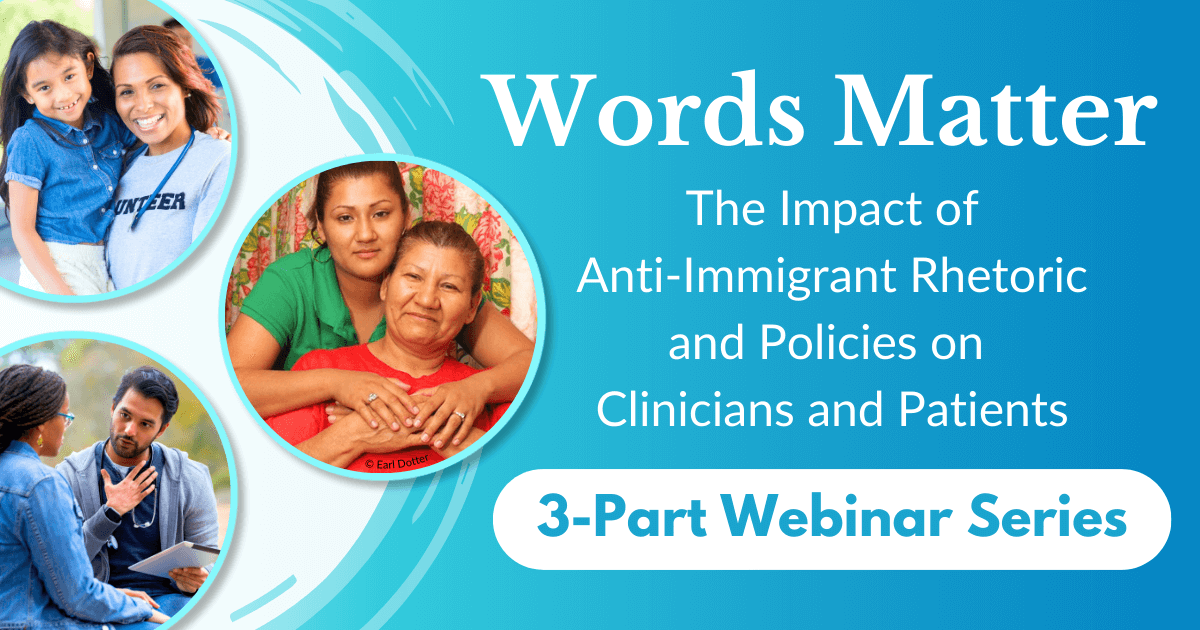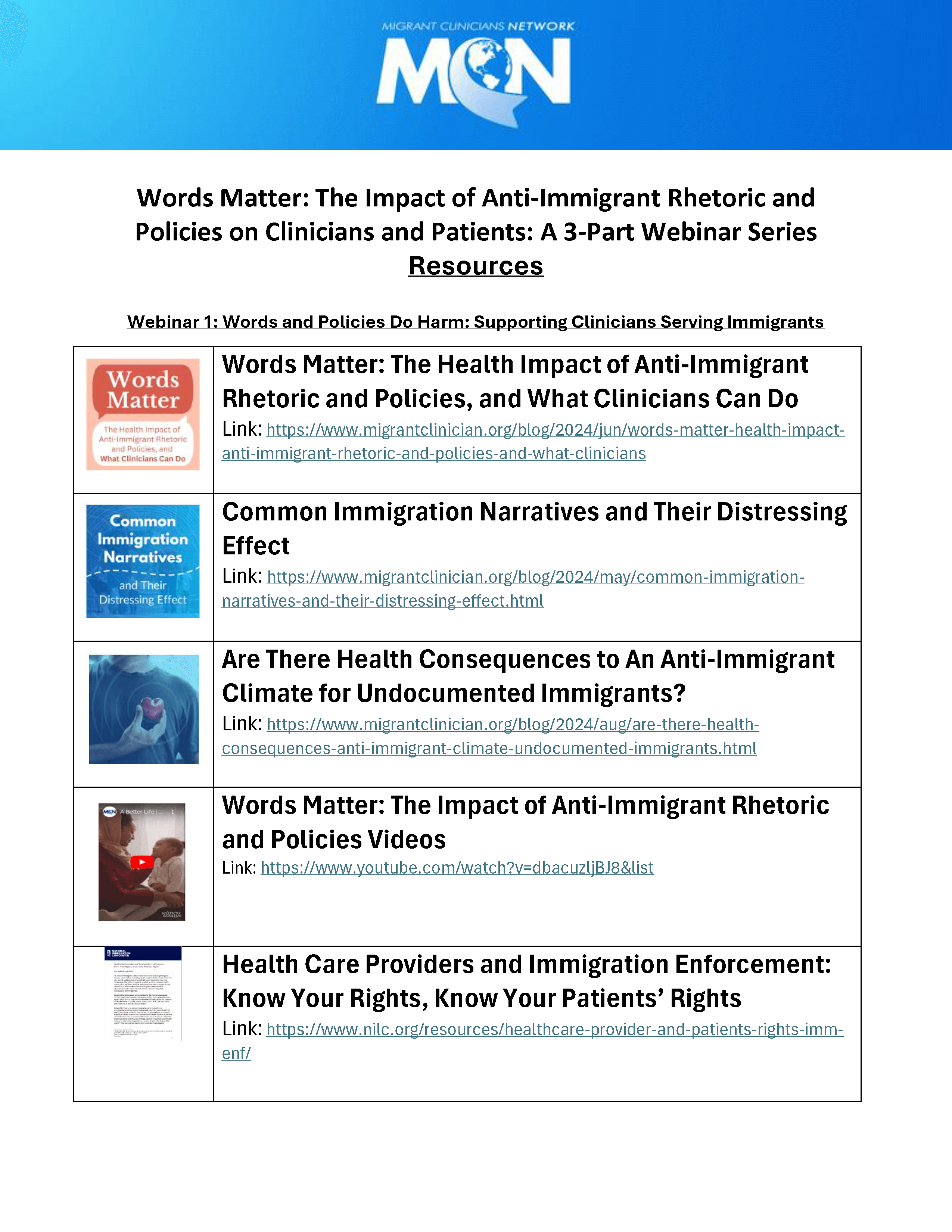In the Post-Election, Pre-Holiday Space, You Can Find Clarity. Here Are Some Ways How.
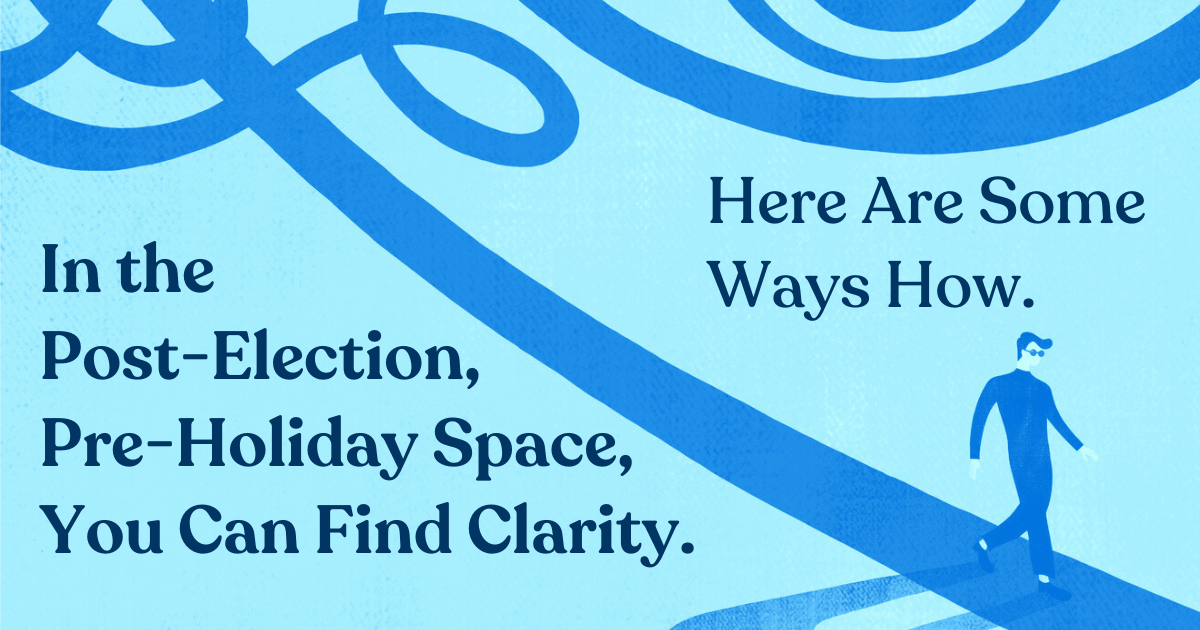
[Editor’s Note: Here on our blog, MCN’s Director of Witness to Witness, Kaethe Weingarten, PhD, shares stories, resources, and helpful tips to support health care workers through the many stressors of their daily lives. In this article, Dr. Weingarten shares her own strategies for this moment, and how to prepare for the holidays with family. Dr. Weingarten also offers a newsletter (called the W2W Update), filled with resources, recent articles, and her news and views.]
We have all just witnessed an historic election. We are about to witness massive changes. While some actions have already been taken by the incoming Trump administration --and a host of actions are also being taken by the current Biden administration – not much is absolutely certain. We can speculate, but as of this writing, we don’t actually know what will unfold after January 20. Yet, despite this space of unknowing, we have to trudge on through our daily lives – including with family and friends who may hold contrasting values during the upcoming holiday season. But there are ways to meet the murky moment in which we find ourselves.
Find like-minded people: I know that a feeling of overwhelm at this moment can go hand in hand with clarity; that is, I have clarity that at some point a way forward will manifest. How can it manifest? For me, it manifests when I meet with like-minded people whose values align with mine and together we figure out the steps to take to improve the lives of the people we care about and serve.
My colleagues at Migrant Clinicians Network are my allies in improving the conditions for the people we have served for the last 40 years. My colleagues in the Witness to Witness program -- Jessica Calderon and Pamela Secada-Sayles -- are my solidarity team. We also have colleagues in other organizations and communities to whom we can turn for perspective, ideas, and support.
Tap into reasonable hope: On November 14, W2W sponsored the third webinar in our Words Matter campaign, “Post-Election Advocacy and Activism for Clinicians Serving Immigrant and Migrant Patients.” We envisioned the need for this webinar in May and we were prescient. You can view the recording of the webinar here and access the resource materials that we generated from that webinar here.
The speakers made it clear that hope is essential. In 2010, I published a long article in a clinical journal about reasonable hope. Years later, I boiled that article down to a three-page handout, which we have in English and Spanish. I think the points have merit for our current moment. Reasonable hope is a necessity, and it rests on a willingness to figure out what can be done with others. It means not giving in or giving up when the way forward is not clear yet.
Be patient: Over time, in this blog, I will be able to figure out how to meet the moment. I don’t know now, and I don’t think I need to know yet. I am focusing on not getting so overwhelmed that I feel paralyzed. I need to believe the W2W mantra that small actions are not trivial. I need to focus on the people with whom I share values; these are the people who support me and help me figure out the steps I can take. For now, that’s enough.
Preparation for diverse views: Also, like many readers of this blog, I need to have a plan for when I am with people whose views are different from mine. That will happen over the course of the holiday season, and it will also happen very concretely over the holiday dinner table. In a country that has shown itself to be increasingly polarized, with people holding views that are farther apart than ever, it can be scary to imagine sitting down with people we care about who feel differently than we do at this moment.
I think this graphic holds a clue as to where conversation can be productive or where feelings can be heard without or with less conflict. I suspect that what we think will make the world a better place may differ, but that it is a safe assumption that most people want the world and our local worlds to be better. Clean air, clean water, safe streets, access to quality healthcare, may all be areas in which there is agreement. Instead of focusing on differences, it may be possible to talk about points of agreement.
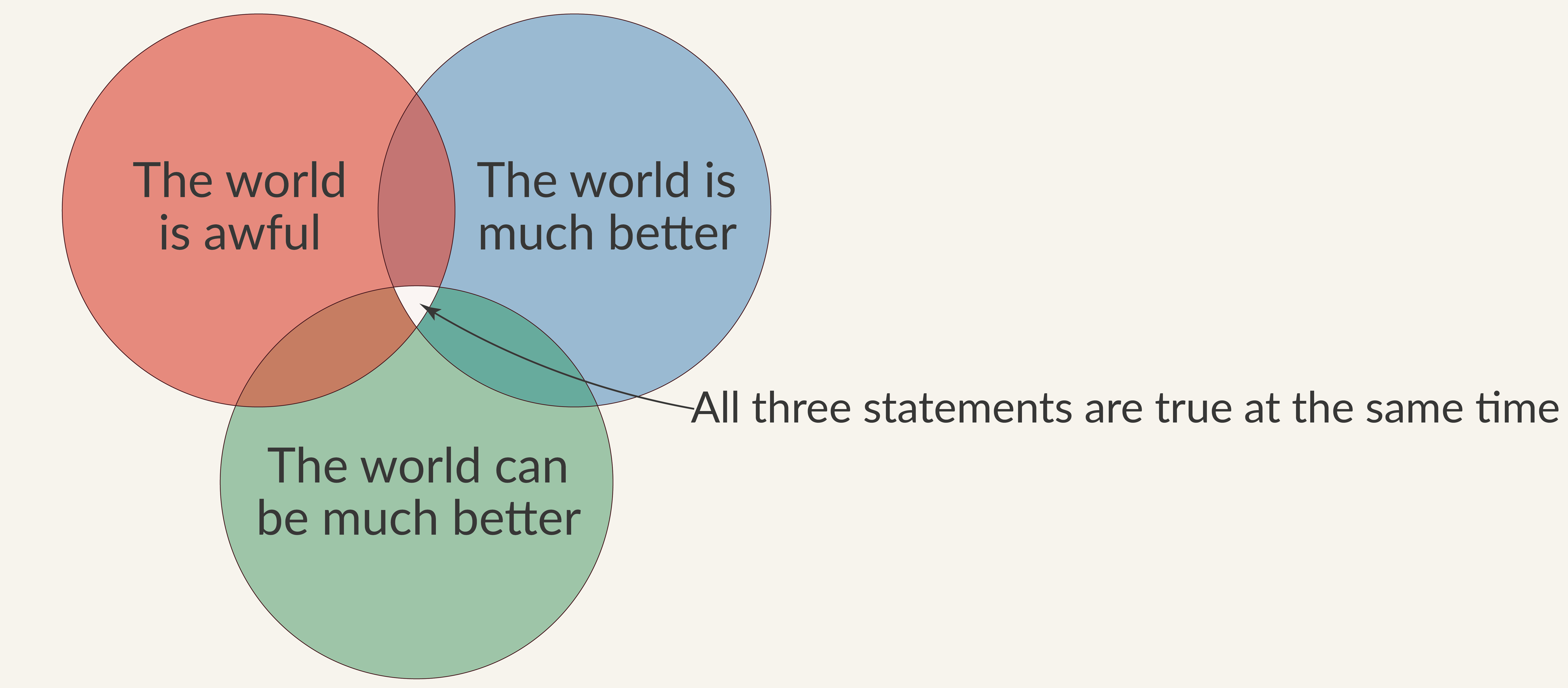
https://ourworldindata.org/much-better-awful-can-be-better
Political polarization has been shown to be bad for our individual and collective health. This article reviews the evidence for this claim. This box from the article presents mitigating actions we can take:
Recommendations to mitigate the impacts
|
Some of these ideas can be practiced not only in our professional lives but also in our personal lives. In previous years, I have made suggestions about how to manage political differences over the holidays. These suggestions still hold.
Getting together with family may cause tensions due to political differences. Here are some suggestions for managing different views:
- Put family connection first; the purpose of family time is affirming love and affection.
- Try to create a politics-free time/zone, especially at the dinner table.
- We all live in media created information bubbles and what we “know” can be very different depending on the “bubble” we are in.
- Remember that we rarely change people’s views; political discussions among family members often just stir up trouble.
- Have some distraction phrases ready to hand if they become necessary:
“So what did you think of the football game?"
“I have to check on the pie.”
“Is that a new shirt you are wearing?”
- Suggest a pause to express what each person is grateful for.
I am a realist by nature, neither an optimist nor a pessimist. I look for ideas that are supportive and I gather with people who are supportive. There are many ideas floating around these days that I am finding helpful. This one comes from many people: Nothing lasts forever; in instability, in chaos, comes the possibility of something new.
I hope to be part of the movement to help something new emerge.
Resources:
Watch the webinar series, access previous blog posts, and watch videos on our Words Matter page.
Access all the resources from the three-part webinar series here.
- Log in to post comments
